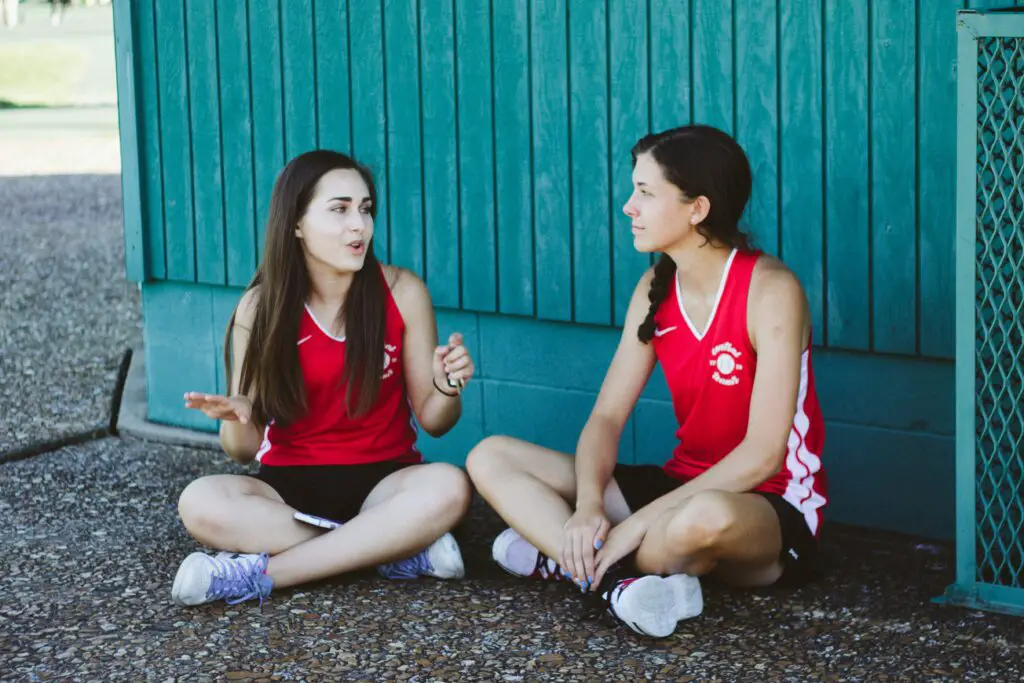The National Collegiate Athletic Association is a member-based non-profit organization that is dedicated to performing administrative regulations for the life-long success and better being of student-athletes. Its headquarter is based in Indianapolis, Indiana. NCAA also organizes college and university athletic programs in the United States and Canada, assisting over 500,000 college student-athletes who compete in collegiate sports each year. But the student-athletes have to follow the rules & regulations officially published by the NCAA. And a question is trending in the context of the prescribed guidelines i.e., Can college athletes accept money from families?. Let’s learn about ‘Can College Athletes Accept Money From Families?’.

Can College Athletes Accept Money From Families?
Athletes have long been restricted by the NCAA from accepting money from families or any other outside source. There is no constraint on how the student-athletes can be rewarded for their NIL. Athletes could have been punished or had their eligibility revoked in the past if they broke the regulations.
Self-Earned Money: Can College Athletes Accept Money From Families?
A question arises what if the student accepts the money from family or any outside source. Then the student-athlete could be restricted from the school even if he didn’t accept the money intentionally, or he confronts this acceptance in front of the NCAA. Being an NCAA athlete entails following some fundamental guidelines set forth by the organization.
A student-athlete can earn as much money as he wants from a job or business he is doing independently. There are no restrictions on that. But the student-athlete must not bring his pending job work during athletic practices. If a student is running his own business, he must not advertise or promote his business products or services in the promises.
The NCAA allows athletes to earn off their likeness and name. Under new temporary restrictions, the NCAA will now allow collegiate players to benefit from their names, photographs, and likenesses.
Current high schoolers are not eligible to earn money as a result of their partnership with their high school team. The NCAA has policies prohibiting student-athletes from getting money in exchange for displaying their school uniform in any way.
Gifts
In a long-running argument over a cap on education-related gifts and benefits that institutions may award student-athletes, the United States Supreme Court decided against the NCAA. However, athletes are given four complimentary regular-season tickets and six complimentary post-season tickets. This is a big advantage if the club makes the Final Four or the football playoffs.
Moreover, DO NOT give a prospect or student-athlete an award or a present for their athletic accomplishment. All rewards must follow NCAA guidelines and be authorized by the university.
Benefits
NCAA v. Alston decision by the United States Supreme Court. The US Supreme Court upheld a lower Federal Court and 9th Circuit Court of Appeals finding on June 21, 2021, that the NCAA and institutions could not restrict “education-related” benefits to student-athletes.
College athletes can now get compensated from their social media accounts, autograph signings, negotiate endorsement deals and other cash opportunities, and do so with the help of an agent or representatives, thanks to an NCAA regulation change.
Many people are unaware that NCAA rules permit student-athletes to earn money by instructing individual classes. … The student-athlete is not permitted to lead a camp or clinic and For those training lessons, the student-athlete may charge the going fee in the area.
The NCAA has announced an interim regulation allowing student-athletes in all three tiers to commercialize their title, image, and likeness, also known as NIL.
It is always possible for parents to provide transportation for their own children.
Conclusion
Student-athletes and their families are frequently required to refund money after breaking NCAA rules (or equivalent if it was a service). If the benefit exceeds $100.00, the student-athlete loses his or her eligibility to compete until the NCAA reintroduces them. Because this procedure can take some time, student-athletes may find themselves out of competition. So go through the guidelines published by the NCAA on their official website. Just navigate through the information attentively. Might be, NCAA is trying to make student-athlete professionally, morally, or financially independent. Once they are under the jurisdiction of college and the NCAA, they have to earn for themselves rather than taking advantage of family or relatives.
FAQs
- Is the NCAA solely concerned with sports?
No. the NCAA focuses on the academic standards of the student-athlete.
- What exactly does the NCAA do with the funds it receives?
The funds are disbursed in a variety of methods, almost all of which benefit NCAA schools, conferences, and almost half a million student-athletes.
- Where can I get information on how to join the NCAA as a student-athlete?
The first step toward being an NCAA student-athlete is to create an account with the NCAA Qualifying Center.
- How did the NCAA come up with its rules?
A member-led governance structure develops the rules that govern NCAA sports.
